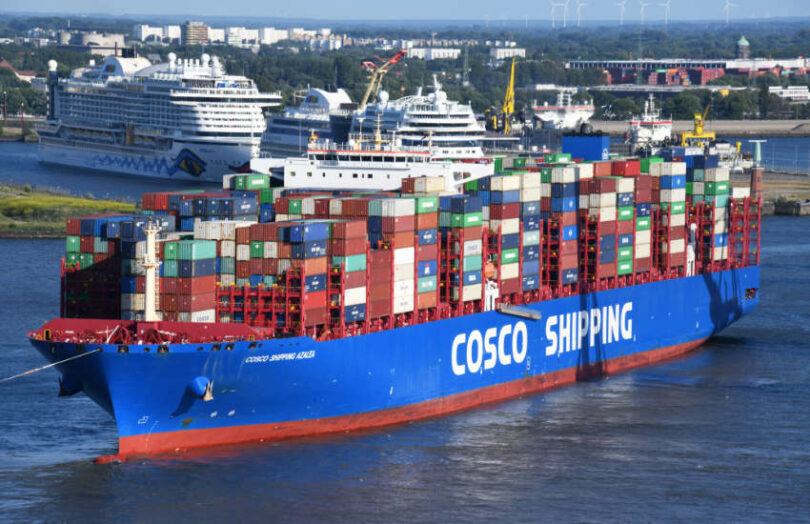Today the Global Shipping Business Network (GSBN) announced it has conducted a proof of concept using blockchain to help verify special cargo such as chemicals and lithium batteries. The trial involved shipping lines COSCO Shipping and OOCL, Shanghai Research Institute of Chemical Industry Testing (SICIT), and appliance manufacturer Midea. COSCO and OOCL are shareholders in the non-profit GSBN.
Last year a ship carrying 4,000 Porsches and Volkswagens from Germany to the United States caught fire and eventually sank. It’s suspected the cause was lithium batteries in electric vehicles, but it hasn’t been confirmed.
Typically cargo receives a safety certification from an organization such as SICIT so that the goods can be handled safely to avoid accidents and protect the crew. However, the paper certificate is typically provided to the sender of the goods. Hence there’s a risk that paperwork could be altered as it passes through logistics companies to cargo shipping companies and onwards, resulting in unknown safety issues.
Using blockchain renders the safety certificate data immutable and structured, ensuring it can be verified by all parties and easily shared with approved parties. Going forward, the solution will also use Internet of Things (IoT) to enable real time traceability as the certificate is associated with specific cargo.
“Redefining the Safe Transportation certification process by harnessing GSBN’s blockchain infrastructure is a significant breakthrough in verification,” said Gaojun Wang, IT Director at SICIT. “Aside from enhancing transportation safety, the streamlined digital process also increases the overall efficiency, minimises human error caused during manual data entry.”
GSBN CEO Bertrand Chen mentioned that the shipping industry is undergoing a once-in-a-lifetime digital transformation. It received a massive boost last month when many of the world’s largest shipping lines committed to making all bills of lading electronic within ten years and half within five years. COSCO was one of the few that had not yet signed up. Once electronic bills of lading (eBL) are widely adopted, the floodgates open for digitizing all the numerous documents associated with shipping.
TradeLens, another cargo shipping blockchain network, shuttered late last year after raking up major losses for Maersk. At the time, GSBN’s CEO Bertrand Chen shared his thoughts on the shutdown with Ledger Insights, which he attributed to TradeLens being for-profit, too big, and choosing applications with too much competition.






